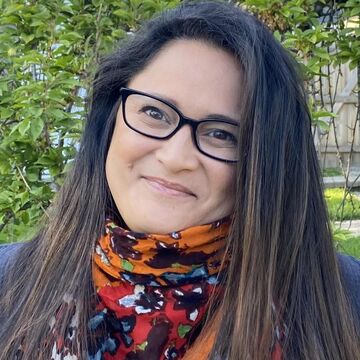

Melissa Raman Molitor
Associate Professor, Adjunct
Contact
Bio
Melissa teaches in both the Art Education and Art Therapy departments at the School of the Art Institute of Chicago. Education: BFA & BA Psychology, 1997, University of Michigan; MA Art Therapy, 1999, SAIC. Credentials: Registered, Board Certified Art Therapist; Licensed Clinical Professional Counselor. Concurrent Position: Founding Director, Evanston ASPA; Evanston City Arts Council, Chair. Exhibitions: SAIC Galleries, Chicago; Evanston Art Center, Evanston; Gallery 901, Evanston. Professional Presentations: Northwestern University; YWCA; American Art Therapy Association; Illinois Art Therapy Association; Mount Mary College, WI. Professional Service: Evanston Public Library Racial Equity Task Force Member; Evanston Made, Board of Directors; Connection Arts Chicago, Board of Directors; Illinois Art Therapy Association, Board of Directors. Awards: Evanston Art Center Curatorial Fellowship; Illinois Arts Council Individual Artist Grant; Evanston Arts Council Cultural Fund Grant; Evanston Community Foundation E-Town Innovation Grant; Northwestern University Racial Equity and Community Partnership Grant.
Melissa’s art and professional practices coalesce in the creation of liminal spaces that employ art as a form of critical consciousness. Her art making involves the exploration of personal and collective identity through fibers, assemblage and installation. Informed by traditional art and ritual practices, her work explores the mapping of cross-cultural journeys and the process of creative placemaking. Her therapeutic work draws on the power of art in fostering human connection and community care, and employing multimedia to engage people in discourse and action towards racial equity and social justice.